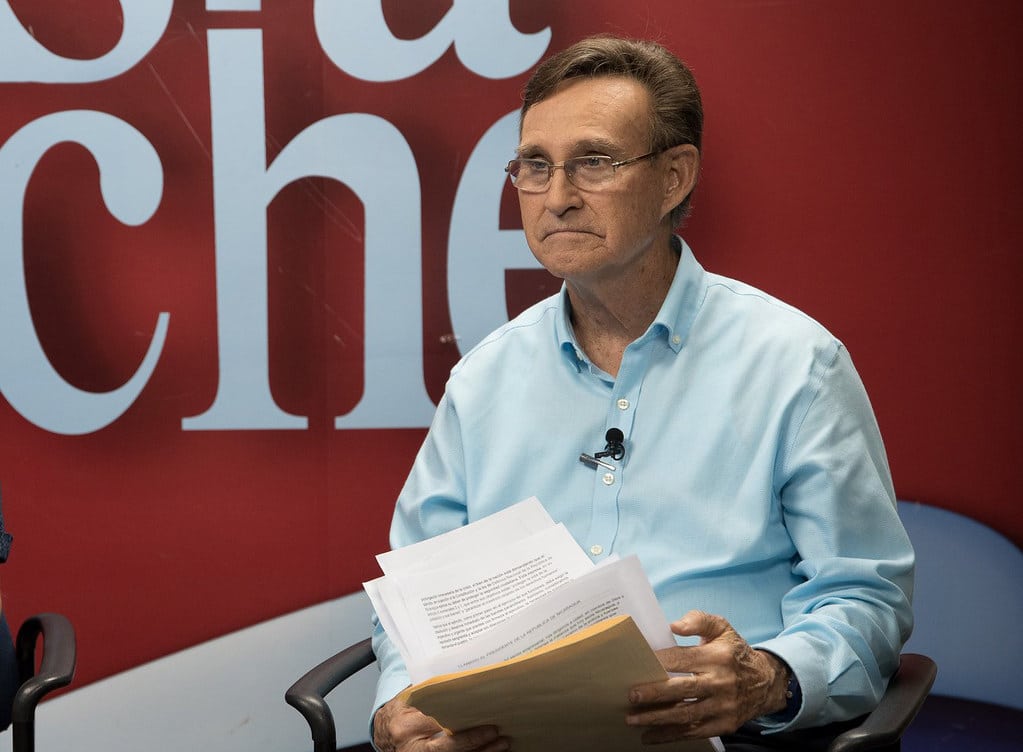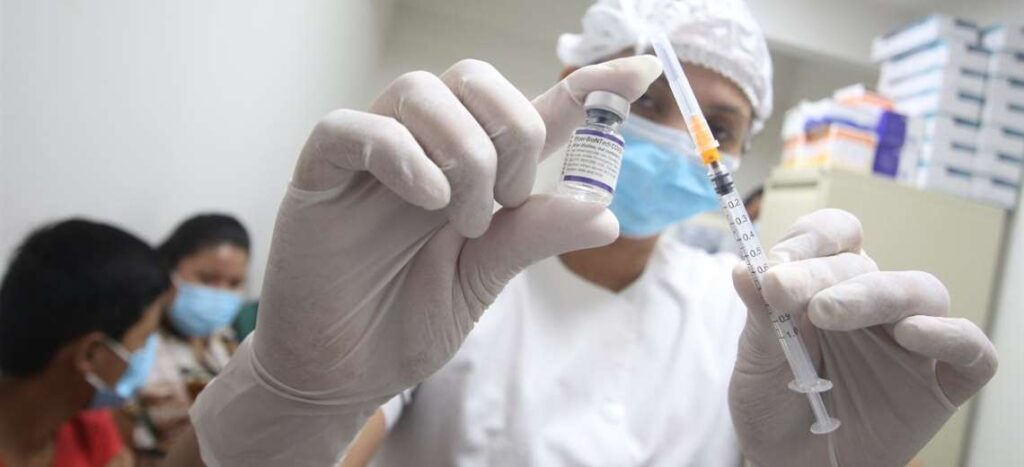The de facto expulsion of the apostolic nuncio Waldemar Sommertag, by the regime of Daniel Ortega and Rosario Murillo, reflects “a totalitarian attitude of a government that no longer admits neutrality, and “if you are not with me you are against me”, considers the sociologist and former minister of education, Humberto Belli, also a former director of the Nicaraguan Foundation for Economic and Social Development (Funides).
In an interview on the show This weekwhich is broadcast this Sunday, March 13, on Facebook and YouTube due to the regime’s censorship, and made one day before the Vatican’s pronouncement confirming the nuncio’s expulsion was known, Belli stressed that the government’s hostility towards the Vatican leaves glimpse a state of paranoia, hysteria and what he called “political machismo” on the part of the regime towards those members of the diplomatic corps who do not openly agree with his way of governing the country.
What consequences could the “de facto expulsion” of the representative of the Holy See in Nicaragua have?
A terrible sign of the bad relationship between the Government of Nicaragua and the Catholic Church. The Government intended to declare it ‘not pleasant and officially expel him. It seems to me that in order to avoid such high-profile acts and with many diplomatic repercussions, they preferred to put pressure on him or force him to leave voluntarily, and thus hide the fact of the expulsion a little. But here there is clearly an expulsion. Let’s see how the Holy See takes it. What happens is that the Holy See has to play a very delicate chemistry. He walks with two hats. The hat of the Church that forces it to have an attitude of reconciliation with all sectors and to refrain as much as possible from issuing political judgments, and then we have the Vatican State, which has ambassadors and leads it to walk a fine line with the authorities of each country.
We are facing a hostile act by the State of Nicaragua against the representative of the Vatican, who has been a channel of communication on various issues in this national crisis. Could a more active reaction be expected from the Vatican in this crisis or will it continue to keep that low profile?
Given the Vatican’s history and normal course of action, they are likely to keep a low profile and express their discontent in more subtle ways. One thing that we are very clear about is that it is not a call from the Pope or a decision from the Vatican, as Monsignor (Carlos) Herrera mistakenly insinuated. We are facing an act of the Nicaraguan government forcing the nuncio to leave. When the Vatican decides to remove someone they never do it abruptly. This type of departure was the product of pressure and harassment.
How do you evaluate the diplomatic management of the nuncio in his relationship with the Government?
He was always very diplomatic. To a certain extent, the government’s hostile reaction is very strange, because it was not playing the role of opponent or critic. Rather he was a very diplomatic intermediary. I personally am grateful to him because in 2019 they raided 200 protesters who were on the streets, they took us to El Chipote, and it was thanks to his intercession that we were able to get out. He had a great desire to help opponents, to bring reconciliation. The problem is that this government, which is becoming less dictatorial and more totalitarian, is highly susceptible. Anything that indicates a lack of support for the government is considered insulting, politically incorrect and prosecutable.
If the nuncio was not a belligerent diplomat or did not represent a belligerent state in the crisis in Nicaragua, but simply wanted to maintain those channels of communication and now the government is expelling him, does that mean that this “appeasement” policy is not valid either? being effective, nor does it open any space for a dialogue with this government?
This is due to a mentality problem between totalitarian and spiteful. If you are not with me, you are against me. The Government is demanding that people be with him and do so in a visible way. It is a government that no longer admits neutrality.
How the expulsion of the nuncio affects the relationship that the regime maintains with the Episcopal Conference. That the State maintains such a hostile attitude towards the nuncio, is it also a threat to the bishops?
The bishops practically feel cornered, they feel threatened. They obviously know what happened. It is true that the nuncio did not have much time to communicate with them, but things were clear since they took away the deanship of the diplomatic corps several months ago. Yes, the bishops feel harassed and threatened. If they don’t even respect the figure of the nuncio, who are they going to respect? and it is one of the striking features of the Government in recent months. Not being afraid to confront friendly countries, diplomats. These types of actions make it hard for me to believe that they come from a strategic decision or rational thought about what is best for them. I think that behind everything, there is a factor of hatred, resentment, bitterness, which promotes these irrational attitudes that are so harmful to ourselves, because these types of things in no way benefit the Government. Rather it isolates him more.
What is the objective of the regime to burn bridges or possible channels of communication?
I don’t see it as the product of cold strategic analysis. I see it more as a product of the liver, irrational reactions and also blindness to reality. There could also be an element of arrogance, of saying, ‘no one messes with me. I’m not afraid of them.’ It is a kind of political machismo that is harmful from a cold and objective point of view for its world interests.
Does it reflect political strength of the Government of Nicaragua to act in this way?
I think on the contrary. I believe that when one is strong and confident, he becomes more generous, softer, more diplomatic, calmer. I think that these types of visceral actions rather denote a kind of paranoia, hysteria, weakness, deep psychological problems.
Is this radicalization of the regime with the international community linked to the political trials in El Chipote? Are the convictions in these trials related to this international isolation?
All of these things are products of an attitude of hatred, resentment and arrogance. For example, if they wanted to remove from the game on the eve of the elections all the candidates who could overshadow Ortega, it was enough to inhibit them. There was no need to throw them in jail, treat them so badly in jail and give them such long sentences. This shows a certain fury and also a desire to intimidate. That is to say, ‘whoever messes with me is going to go very wrong. We are not going to have mercy.’ Fear does have a function that can be quite effective, fear paralyzes and dictators use it because they know it is an instrument of control.
















